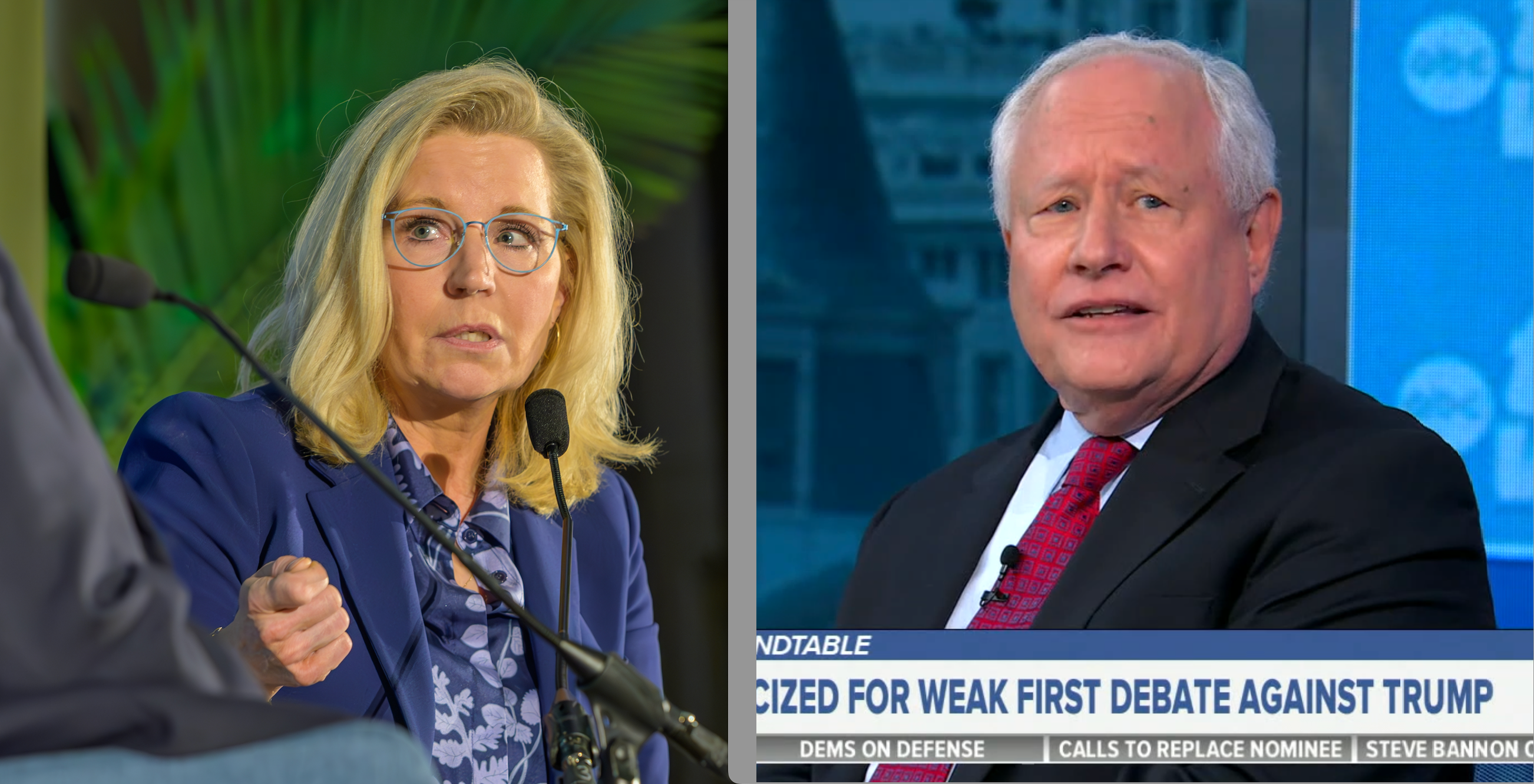On Wednesday, an image that went viral on X noted that some of the most prominent Republicans were not taking part in the Republican National Convention.
The names included former President George W. Bush, former Vice President Mike Pence, 2012 Republican presidential nominee Mitt Romney, former Rep. Liz Cheney (Wy.) and 2012 vice presidential nominee and former Speaker of the House Paul Ryan.
Each of these Republicans were, and are, committed to the neoconservative version of the GOP that guided and defined their party two decades ago. A fantasy world in which the Bush-Cheney administration remained the Republican archetype, the U.S. invading Iraq was the right decision, and, in that spirit, America’s number one mission today is to send taxpayer dollars to Ukraine to fuel an indefinite proxy war with Russia.
In their time, hawkish foreign policy was the primary definition of what it meant to be a Republican. That agenda is still definitely part of the party, particularly among its entrenched establishment. But at the top, the Republican presidential nominee Donald Trump has said the Bush administration “lied” Americans into Iraq in 2003. His vice presidential choice, Sen. JD Vance of Ohio, served in Iraq, now fiercely opposes that war, and also loudly rejects the U.S. funding of the Russia-Ukraine war.
Something is different now.
That’s exactly why so many Bushes, Cheneys, Romneys and their political cousins aren’t in Milwaukee this week: neoconservatives don’t dominate the party anymore.
And they’re mad.
After Trump announced Vance was his VP choice, Liz Cheney posted, that Vance “would capitulate to Russia and sacrifice the freedom of our allies in Ukraine.”
“The Trump GOP is no longer the party of Lincoln, Reagan or the Constitution,” Cheney added.
It’s worth reminding readers that Reagan was absolutely despised by the neoconservatives of his time for negotiating with Russia.
Neocon godfather Bill Kristol wrote, “The opening night of the Republican Convention sent a clear signal: The balance of power within the GOP has shifted. This is an isolationist party. If Republicans win this year’s election, the first victim of this retreat from the world will be Ukraine."
The Washington Post’s Jennifer Rubin declared Vance a “Putin puppet” even before his nomination. After Vance’s nomination, former Republican Rep. Adam Kinzinger (Ill.) parroted Rubin on Stephen Colbert’s late night show, saying “They are celebrating that choice, both in Milwaukee tonight and in Moscow.” Kinzinger accused Vance of using “Russian talking points.”
These are just a few of the neoconservatives who were openly stating their disapproval of Vance and the direction of the Republican party on foreign policy. There are likely many more of them who are upset but probably know better, politically, than to say it out loud.
Trump’s first vice president, Mike Pence, has said nothing, neither have Romney nor Ryan.
As Politico reported Wednesday, many Republican hawks are “scared to death” of the choice of Vance. “Former President Donald Trump didn’t just select a running mate here – he doused political kerosene on the raging Republican fire over foreign policy,” Politico reported. “By tapping the 39-year-old Sen. J.D. Vance, one of the party’s leading national security doves, Trump strengthened the hand of the isolationist forces eager to undo the hawkish GOP consensus that has endured since the Reagan era.”
When Republican Ron Paul ran for president in 2008 and 2012, he was often accused of siding with America’s enemies for his antiwar positions, in what was still a heavily neoconservative GOP. Those attacks often worked.
But they don’t fly anymore. At least not with the Republican base. Neoconservative Republican voices of the past like Cheney, Kristol, or Kinzinger calling Vance a tool of Putin or worse has no effect whatsoever at this point, if anyone even hears them. The party’s changed. As the Washington Examiner’s Jim Antle said of the GOP convention this year, “’No new wars’ has become the ‘no new taxes’ of this Republican convention, hopefully with better results.”
Like Trump, JD Vance is not a perfect non-interventionist. But right now his elevation is definitely upsetting the right people, at least for those of us on any part of the ideological spectrum who have long cared about America adopting a more non-interventionist foreign policy.
There is something wrong with a country that believes an eternal war footing is its reason for being. Now, some high-profile leaders are challenging that orthodoxy in a way that is making old power upset.
Enjoy the moment.
- Where are Trump's possible VPs on foreign policy? ›
- What will Vance do for Trump's foreign policy? ›
- New senator JD Vance leads GOP effort to put Ukraine aid under a microscope ›
- The war on war at the DNC, RNC confabs | Responsible Statecraft ›
- Munich Dispatch: Vance lectures Euros on democracy & tolerance | Responsible Statecraft ›
















